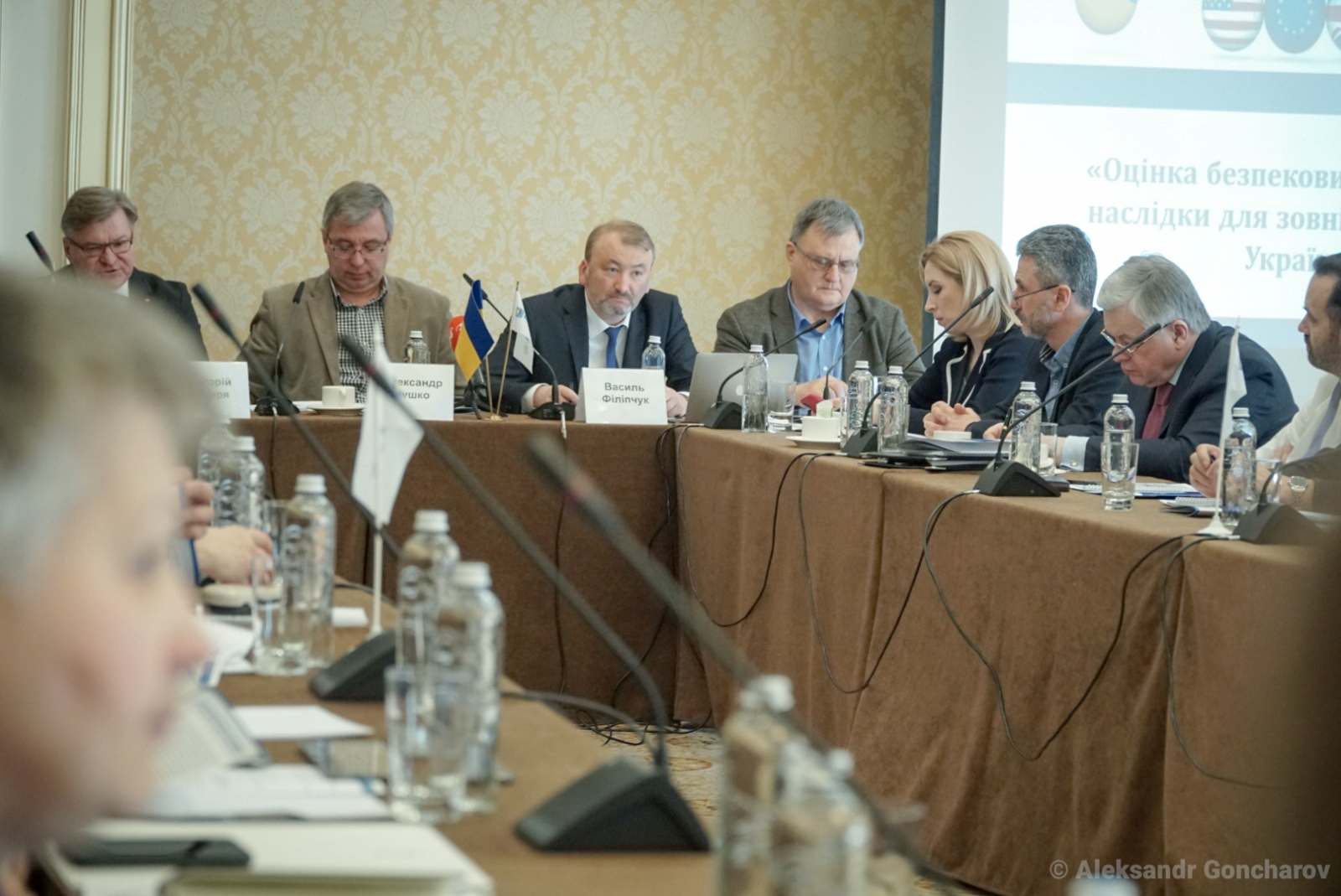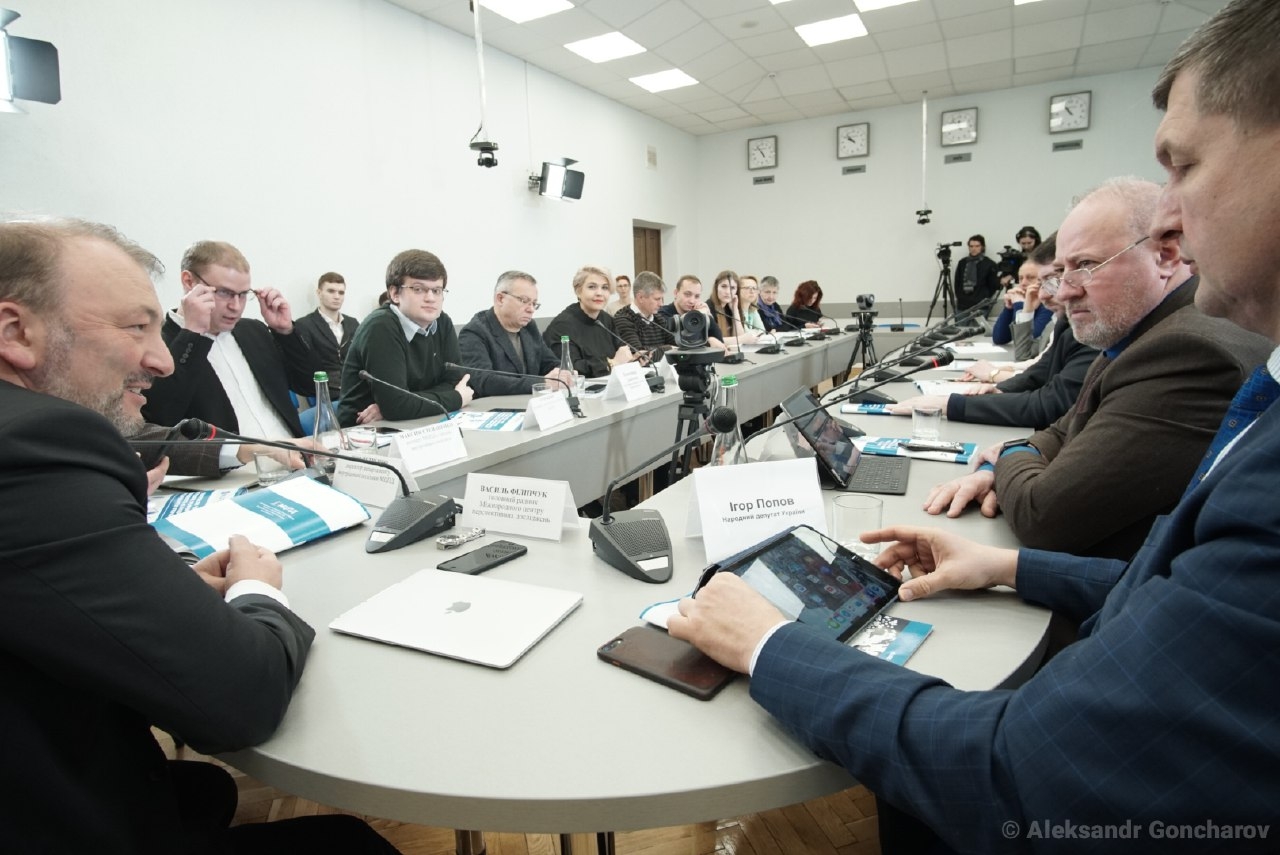Events and news
ICPS issued a fourth assessment of local/regional measures for October-December 2019
International Centre for Policy Studies presented a fourth assessment of local/regional activities for October-December 2019 within the framework of the project “Promoting transparency and implementation of anti-corruption measures in state-owned enterprises and local governments in Ukraine”. The initiative is carried out in partnership with the Institute for Economic and Social Reforms in Slovakia (INEKO) and is financially supported under the program “Official Development Assistance of the Slovak Republic (SlovakAid)”. The project is aimed at increasing the efficiency of public administration, local governments and civil society in the area of regional policy, state-owned enterprises, budget monitoring and openness of information of local authorities. The main objective of the initiative is to improve the quality of regional and/or municipal regulation and legislation by publishing a regular peer review of socio-economic measures proposed or implemented by local government bodies in Ukraine. The purpose of the assessment is to describe practices that may also be applied by other administrations. Measures for evaluation were identified and analyzed with the support of the expert council, which was selected by International Centre for Policy Studies based on their experience. As a result, six local and regional measures are described in this publication, one of which is innovative and may have positive significant impact on the development of the city. In addition, this publication summarizes the policy evaluation results for 2019. We hope that these practices can promote good ideas and inspire their implementation throughout Ukraine. Among the six local and regional events provided to the evaluation experts, five projects received a positive assessment. In particular, the approval of the Safe City Program for 2020-2022, which is being implemented in Zhytomyr, was highly assessed. This measure received almost unanimous expert approval (+2.2 points out of 3.0 possible). According to it, additional 356 CCTV cameras will be installed in the city. Experts believe that such a project will provide a comfortable and safe life for the residents of the city. Second by the importance and expert approval is a project on completion of 2 new checkpoints and reconstruction of the existing one at the Ukrainian border in Chernivtsi region. This, according to expert opinion, will prevent queues and reduce corruption risks at customs. The measure for selection of the winners of the Participation Budget 2019 in the Poltava region is in the third place. It should involve residents in active participation in various areas of the region's development. In turn, the measures of accession to the International Open Data Charter (Uzhgorod) and the approval of the socio-economic development plan for 2020 (Chernihiv) are positioned in the middle of the ranking without receiving sufficiently high scores from the experts. It was noted that although these measures are positive, they can be declarative and the practical implementation of the authorities' intentions may not be successful. The decision on increasing the tariffs for heating and repayment of debts of the municipal heating company at the expense of the city budget in Odessa received the lowest and, moreover, negative expert evaluation. The analysis showed that the authorities used the simplest way instead of finding the effective alternatives to solve the problems of the utility company and the district heating. Therefore, this measure has received the lowest ranking points and was ranked the last. In turn, the final rating of the 2019 measures is as follows: Ranks Case Final score [-300; 300] Summary edition 1 Adoption of a New Edition of the Statute on Territorial Community (Kropyvnytskyi) 185,7 1 edition 2 Implementation of a comprehensive city lighting program (Mukachevo city) 180 3 edition 3 Approval of the Safe City Program for 2020-2022 (Zhytomyr) 171,6 4 edition 4 Acceptance of purchase of new trolleybuses for the money of the EBRD (Poltava) 160,3 2 edition 5 Approval of "Sustainable mobility plan of the city" (Zhytomyr) 158,4 2 edition 6 Contest of Social Projects of Civil Society Institutions (Odessa) 134 2 edition 7 Creation of the Online Map on the Realized Purchases for Schools and Households (Uzhgorod) 104,1 1 edition 8 Project “Teacher+” (Odessa) 100,8 1 edition 9 Completion of 2 new checkpoints and reconstruction of the existing one at the Ukrainian border (Chernivtsi region) 99 4 edition 10 Joining the CoST Initiative (Khmelnytskyi oblast) 72,2 3 edition 11 Selected winners of the Participation Budget 2019 (Poltava Region) 70 4 edition 12 Accession to the International Open Data Charter (Uzhgorod) 52,2 4 edition 13 Business projects contest for start-up entrepreneurs (Transcarpathian region) 49 2 edition 14 Combining efforts of the city authorities and the police to prevent and counteracting ill-treatment with children (Dnipro) 27,2 2 edition 15 Towards equal opportunities - Accession to the Charter of equality between women and men (Zhytomyr city) 22 3 edition 16 Adopting the Complex Target Program of Environmental Welfare for 2019-2021 (Kyiv) 18,4 1 edition 17 Approval of the decree "On the inadmissibility of trading alcoholic, low alcohol drinks and beer in temporary buildings" (Lviv) 12 2 edition 18 The planned opening of the business support centers (Chernihiv oblast) 9,6 3 edition 19 Approval of the plan for socio-economic development for 2020 (Chernihiv) 5,2 4 edition 20 The city council approved the logo of the city (Ivano-Frankivsk) 4,8 2 edition 21 Transferring the Functions of the Local Road Service for Repairing the Local Roads (Khmelnytskyi) 0 1 edition 22 Permission for construction of a private road to the port (Odesa city) -28 3 edition 23 Struggle between Regional State Administration and JSC “Ukrzaliznytsya” which closes non-profit stations (Chernivtsi oblast) -37 3 edition 24 Reconstruction of the Perinatal Centre (Chernivtsi) -52,7 1 edition 25 Reconstruction of the "Peremohy" Park (Kropyvnytskyi) -64,7 2 edition 26 Increase of tariffs for heating and repayment of debts of the municipal heating company at the expense of the city budget (Odesa) -98,4 4 edition The detailed evaluation can be found here: Monitoring of Local and Development Policies in Ukraine (October 2019 - December 2019) window.dataLayer = window.dataLayer || []; function gtag(){dataLayer.push(arguments);} gtag('js', new Date()); gtag('config', 'UA-122353741-2');...
ICPS issued a third assessment of local/regional measures for July-September 2019
International Centre for Policy Studies presented a third assessment of local/regional activities for July-September 2019 within the framework of the project “Promoting transparency and implementation of anti-corruption measures in state-owned enterprises and local governments in Ukraine”. The initiative is carried out in partnership with the Institute for Economic and Social Reforms in Slovakia (INEKO) and is financially supported under the program “Official Development Assistance of the Slovak Republic (SlovakAid)”. The project is aimed at increasing the efficiency of public administration, local governments and civil society in the area of regional policy, state-owned enterprises, budget monitoring and openness of information of local authorities. The main objective of the initiative is to improve the quality of regional and/or municipal regulation and legislation by publishing a regular peer review of socio-economic measures proposed or implemented by local government bodies in Ukraine. The purpose of the assessment is to describe practices that may also be applied by other administrations. Measures for evaluation were identified and analyzed with the support of the expert council, which was selected by International Centre for Policy Studies based on their experience. As a result, six local and regional measures are described in this publication, three of which are addressing the infrastructural issues and three are social projects, including the government, business and civil society cooperation initiative. Two of them are innovative and may have positive significant impact on the economic and social development of Ukraine. We hope that these practices can promote good ideas and inspire their implementation throughout Ukraine. Among the six local and regional measures provided to the experts for evaluation, the first and the last places were taken by infrastructural projects. Two social projects appeared in the middle of the ranking, while having the neutral scores. The vast majority of experts noted the importance of implementing of such an infrastructural project as the "Implementation of a comprehensive city lighting program in Mukachevo". Moreover, this measure received almost unanimous expert approval (+2.4 points out of 3.0 possible) as it has significant synergistic effect. Experts believe that after the implementation of this measure, the city will receive not only the greater security and tourist attractiveness, but also will increase its energy efficiency (the project envisages the lighting of 14 zones and replacement of outdated electricity networks and lamps). Second by importance and expert approval is the project for creating a platform for cooperation between government, business and civil society. Joining the CoST (Construction Sector Transparency Initiative), according to expert opinion, will ensure transparency of implementation of infrastructural projects and conduction of monitoring of the road sector to inform the community about the improvement of local infrastructure. The experts noted such a measure to be a project with future perspective and with considerable potential for the implementation of the public-private partnership form. Among the two social projects on promoting the gender equality and supporting small businesses (third and fourth place respectively), the project with the aim of Accession to the Charter of equality between women and men (Zhytomyr) received the highest score. The measure will have a positive impact on ensuring the equal rights and opportunities for the Zhytomyr community. However, the lack of any planned practical steps for further implementation under the project have led to relatively low experts` assessments. The lowest (even negative) expert evaluations were received by two infrastructural projects regarding the construction of a private road to the port (Odessa) and the activities of PJSC "Ukrzaliznytsya" (Chernivtsi region). Experts believe that the results obtained from the implementation of these projects will be weakly linked to the declared solution of structural problems of the regions. The lobby of the city administration is clearly seen in the first case. Therefore, experts have commented remarks on decision-making procedures and possible corruption risks. In the second case, the attempt of PJSC "Ukrzaliznytsia" to solve its financial problems by transferring them to the state and society is seen. The closure of railway stations throughout the Chernivtsi region will have a negative impact on the economic situation in the region, and may create long-term social challenges. Consequently, this measure has received the lowest ranking points and was ranked the last. The detailed evaluation can be found here: Monitoring of Local and Development Policies in Ukraine (July 2019 - September 2019) window.dataLayer = window.dataLayer || []; function gtag(){dataLayer.push(arguments);} gtag('js', new Date()); gtag('config', 'UA-122353741-2');...
ICPS issued a second assessment of local/regional measures for April-June 2019
International Centre for Policy Studies presented a second assessment of local/regional activities within the framework of the project “Promoting transparency and implementation of anti-corruption measures in state-owned enterprises and local governments in Ukraine”. The initiative is carried out in partnership with the Institute for Economic and Social Reforms in Slovakia (INEKO) and is financially supported under the program “Official Development Assistance of the Slovak Republic (SlovakAid)”. The project is aimed at increasing the efficiency of public administration, local governments and civil society in the area of regional policy, state-owned enterprises, budget monitoring and openness of information of local authorities. The main objective of the initiative is to improve the quality of regional and/or municipal regulation and legislation by publishing a regular peer review of socio-economic measures proposed or implemented by local government bodies in Ukraine. The purpose of the assessment is to describe practices that may also be applied by other administrations. Measures for evaluation were identified and analyzed with the support of the expert council, which was selected by International Centre for Policy Studies based on their experience. As a result, eight local and regional measures are described in this publication, two of which are addressing the infrastructural issues, two are social projects, two are contest projects together with the measures for the beautification of the area and improving the branding of the city. Three of them are innovative and may have positive significant impact on the economic and social development of Ukraine. We hope that these practices can promote good ideas and inspire their implementation throughout Ukraine. The most positive attitude of experts was to projects related to the development of the transport infrastructure of cities. Thus, the project "Acceptance of purchase of new trolleybuses for the money of the EBRD" (Poltava) received the highest score (1st place), because it involves the allocation of money from the European Bank, which already indicates about its relevance and validity. In addition, these credit resources are beneficial for the borrower (in terms of timing and value), which also resulted in the absence of significant remarks from experts. The project on the development and approval of the "Sustainable mobility plan of the city" (Zhytomyr), which is aimed at introducing the European experience in the rational organization of transport connection and traffic management in a large city, is in the second place by the importance and expert's support. This measure for planning the development of the transport network in the modern city was noted by experts as a project with a prospect for the future and with a significant potential for implementation in the form of public-private partnership. Among the two social projects (third and fifth place), the "Contest of Social Projects of Civil Society Institutions" (Odessa), which contains 11 areas / nominations covering the important social problems, received the highest score. Experts have positively evaluated the way of distributing the funds, namely, holding a competition among the NGOs with a subsequent public presentation. In their opinion, this leads to more thorough project development and transparency of funding. Among the measures with the lowest experts` evaluation were the project of approval of the city logo (Ivano-Frankivsk city), which has no significant impact on the socio-economic living standards of the population of the city, and the project for the reconstruction of the park (Kropyvnytskyi city), the cost of which is significant for the city budget on the background of careless execution of works and a large number of unresolved acute social problems. The detailed evaluation can be found here: Monitoring of Local and Development Policies in Ukraine (April 2019 - June 2019) window.dataLayer = window.dataLayer || []; function gtag(){dataLayer.push(arguments);} gtag('js', new Date()); gtag('config', 'UA-122353741-2');...
ICPS starts an assessment of local/regional activities
International Centre for Policy Studies starts an assessment of local/regional activities within the framework of the project “Promoting transparency and implementation of anti-corruption measures in state-owned enterprises and local governments in Ukraine”. The initiative is carried out in partnership with the Institute for Economic and Social Reforms in Slovakia (INEKO) and is financially supported under the program “Official Development Assistance of the Slovak Republic (SlovakAid)”. The project is aimed at increasing the efficiency of public administration, local governments and civil society in the area of regional policy, state-owned enterprises, budget monitoring and openness of information of local authorities. The first edition of series of local and regional policy assessments introduced in December 2018 - March 2019 was carried out. Future evaluations will be conducted on a quarterly basis. In total, more than 20 local politicians will be assembled and streamlined by the end of the project. The main objective of the initiative is to improve the quality of regional and/or municipal regulation and legislation by publishing a regular peer review of socio-economic measures proposed or implemented by local government bodies in Ukraine. The purpose of the assessment is to describe practices that may also be applied by other administrations. Measures for evaluation were identified and analyzed with the support of the expert council, which was selected by International Centre for Policy Studies based on their experience. Selected experts assessed the local measures and policies adopted by local and regional authorities. In total, six local and regional events are currently evaluated. Three of them are innovative and can have a significant positive impact on the economic and social development of Ukraine. We hope that this practice can promote good ideas and inspire their implementation throughout the territory of Ukraine. The evaluation can be found here: http://icps.com.ua/assets/uploads/images/images/eu/local_measures_ukraine_march_2019_.pdf...
Assessment of security challenges: consequences for Ukraine's foreign policy after the elections
International Centre for Policy Studies presented the analytical paper “Assessment of security challenges: consequences for Ukraine's foreign policy after the elections”. Former foreign ministers of Ukraine, diplomats, international experts participated in the expert discussion. While presenting the research, ICPS Associate Expert Mykola Kapitonenko identified the trends, challenges and threats to Ukraine's foreign policy and national security. In turn, ICPS Chief Adviser Vasyl Filipchuk outlined the tasks and priorities for Ukraine's foreign policy after the elections. “The world is changing rapidly, destroying the traditional notions of international security and the form of interaction between states, - reads the introductory part of the study. - Institutes of multilateral cooperation are in deep crisis. International law and other non-forcible means of regulating international relations are losing efficiency, while the demand for hard power is growing. States have less trust to each other and increasingly accept international politics as zero-sum games. Non-traditional threats are increasing and those that were on the agenda for a long time - for example, the proliferation of nuclear weapons - is becoming more acute. In such conditions, Ukraine is increasingly turning into an object of international relations, as well as losing its influence on regional processes, while non-mention of global ones. The space for maneuver in foreign policy is narrowing; the tools and resources to achieve their own goals are becoming less. The implementation of current foreign policy, characterized by mixing priorities and lack of realistic assessment of the international situation, further weaken Ukraine's position on all key issues: in conflict with Russia, in dialogue with Western partners and in relations with the majority of its neighbors,” the authors believe. According to them, the continuation of this state of affairs will lead to Ukraine's consolidation in the “gray zone” of Europe's security for decades. The authors consider that the only chance to avoid this scenario is the presidential and parliamentary elections in Ukraine in 2019. Although the results of these elections are difficult to predict, without doubt, one can predict for several years that the urgency of Ukraine's challenges in the field of foreign policy and security will not diminish, and their solution will occupy a priority place among the new leadership of the country. “It is probable that the reset of executive and legislative power will open a window of opportunity to solve existing foreign and security problems, but the external environment will remain as complex or even less favorable for Ukraine, - the research reads. - The domestic institutional or economic weakness of the country, even under conditions of rapid and successful post-election reforms, will continue to aggravate its foreign policy for a long time, and the absence of such reforms will further limit its foreign policy capabilities.” One of the conditions for a successful new foreign policy is an adequate reassessment of the foreign policy and security environment of the country, challenges, threats, its own resources and opportunities to achieve its goals. “No matter what developments have taken place, Ukraine will need much more professional, decisive and flexible diplomacy in the coming years. This diplomacy, in turn, will require a lot of attention and great resources. We will be forced to learn to think about safety issues not as they used to do in the past. And this can prove to be a serious test”, - the authors of the study conclude. During the discussion participants also critically expressed their views on the current work of the Ministry of Foreign Affairs and foreign policy of the state as a whole. Both Kostyantyn Gryshchenko and Borys Tarasyuk, other heavyweights of Ukrainian diplomacy and expert environment emphasized, in particular, the problem of weak management in the Ministry of Foreign Affairs. Research via the link (Ukrainian version): LINK...
Populism or systemic reforms: what candidates for the President of Ukraine promise?
The experts of the International Centre for Policy Studies presented research on candidates' election programs, their views on the development of economic and domestic policies and principles on which they are planning to build their own national development strategies. The candidates for the President of Ukraine in the next elections on March 31, 2019 in their programs manipulate the low level of education of Ukrainians. This was stated by the expert on internal policy of the International Center for Policy Studies Maxym Stepanenko during expert discussion in “Ukrinform”. “One can also say that presidential candidates are manipulating the low political education of Ukrainians, and therefore they are trying to sell as much air as possible,” Stepanenko said during presentation of the program analysis of candidates for the President of Ukraine. He stressed that candidates' programs are the same; it is difficult to distinguish them, not from one another, but from past programs. According to the expert, this suggests that the problems that candidates are proposing to resolve are still relevant, respectively, - “their old programs and promises were not effective”. In this regard, the expert Igor Petrenko noted that real competition for electoral sympathies is still due to pressure on the irrational. “We see that this is first and foremost an image, something with which the presidential candidate is associated, and with regard to programs, they also can write about free bread,” he said. Among the most widespread promises of presidential candidates that the expert has singled out is the promise of a tax reform that occurs in 33 candidate programs, 27 candidates promise to implement medical reform, and 24 - judicial. The same number of them promises to raise social standards. At the same time, Stepanenko said, there is a promise to carry out anti-corruption reform in the programs of 19 candidates, and constitutional - in 17. 17 candidates for the presidency mention the support of the Euro-Atlantic course of Ukraine and the promise to introduce a norm on the election of judges. “More relevant issues for today's Ukraine are plans for building a professional army that could protect us from Russian aggression in Donbas and establish territorial integrity and sovereignty. Also, the process of decentralization was actualized - 23 presidential candidates promise to stimulate it, expand the rights of communities, and contribute in every way to this process,” Stepanenko said. At the same time, according to him, only in the programs of 12 presidential candidates the attention to the issue of labor migrants returning to Ukraine was paid. Research via the link (Ukrainian version): LINK...






